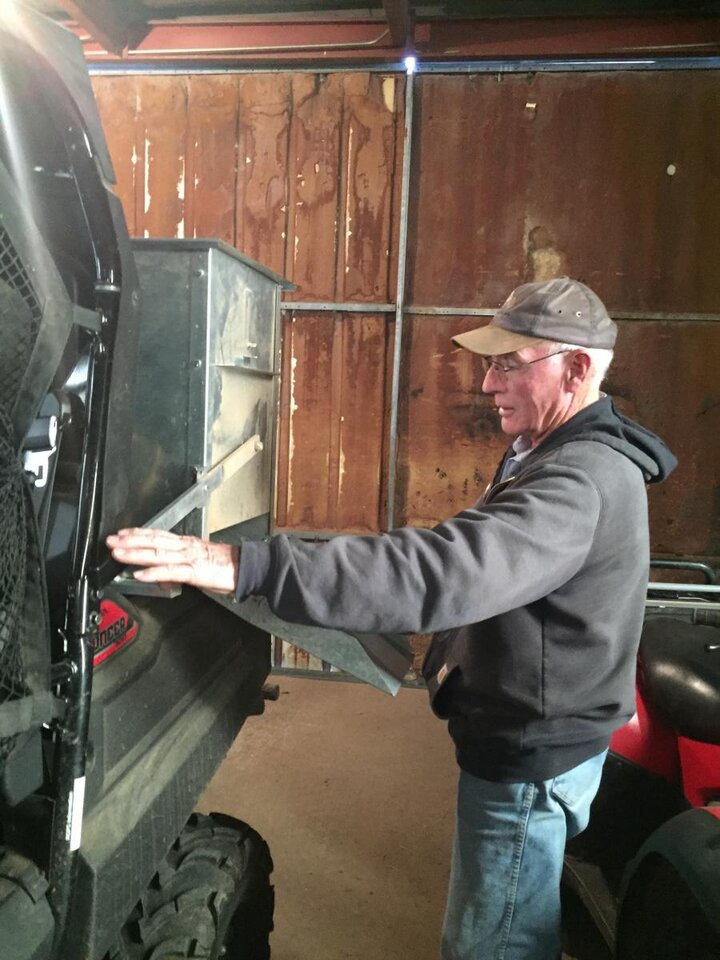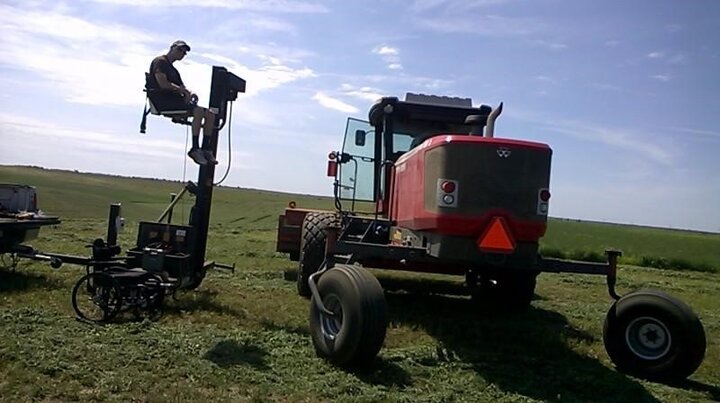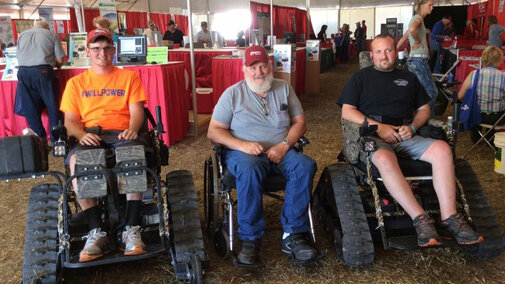Agricultural workers with disabilities or chronic illness, their families, and professional staff are invited to the AgrAbility National Training Workshop to be held March 25-28 in Lincoln.
Travel stipends are available to help farmers/ranchers or ag students with disabilities attend the AgrAbility National Training Workshop in Nebraska. Stipend applications are due by February 7, 2019. (See information at the end of this article for application details.)
The workshop, to be hosted by Nebraska AgrAbility, is the foremost educational event in the nation addressing disabilities in agriculture. Potential clients and their families, AgrAbility staff members, and stakeholders including USDA and rehabilitation professionals, other non-profit stakeholders, and suppliers of products beneficial to AgrAbility customers are all invited.
Program topics cover a wide range of relevant, practical knowledge from how to leverage resources to direct service to clients, networking with other clients, service providers and agency representatives, and training. (Check the workshop website for more program details as they become available and view programs from previous years.)
The vision of AgrAbility is to enhance the quality of life for farmers, ranchers, and other agricultural workers with disabilities, so that they, their families, and their communities continue to succeed in rural America.
Success can have multiple meanings, whether it is getting back to one’s own business, gaining employment in agricultural production, or gaining the assistive technology needed to complete everyday life tasks. Nebraska AgrAbility’s priorities are to develop educational programs that increase individual knowledge, advance capabilities through new technologies, encourage peer networking, and provide direct services to agricultural workers in need.
Nebraska AgrAbility’s team includes two Nebraska Extension Educators, Nancy Frecks and Susan Harris-Broomfield, UNMC and UNL faculty member Aaron Yoder, and four Nebraska Easterseals staff members, Angie Howell, Rod Peterson, Emily Freudenburg, and John Davis.
AgrAbility at Work in Nebraska

One Nebraska rancher, Rowan Ballagh, inquired about Nebraska AgrAbility when his former classmate raved about the assistance he received.
Ballagh grew up on a ranch in Nebraska where his family raised cattle, rode horses, flipped hay, and attended rodeos. He planned to continue ranching for the rest of his life, but instead was called to serve his country in the Vietnam War.
During his military tour with a search and destroy unit, Ballagh sustained a bullet wound to his right shoulder.
“I had fairly minimal use of the arm when I returned home,” Ballagh said, “so I became dependent on my left arm.”
Ballagh returned to the family ranch, married, and continued his agricultural passion. Now, nearly 50 years later, back problems, arthritis, and weakness of the left arm offer new challenges.
“My left arm and hand were just getting weaker all the time.”
Ballagh worked closely with AgrAbility Rural Rehabilitation Specialist Emily Freudenburg to come up with the best plan to meet his equipment and accessibility needs on his ranch. Rowan’s biggest need was for adjustments to his cattle chute. His manual chute required him to be standing, moving back and forth, and lifting both arms above his head, which is not only a challenge but also could lead to a secondary injury. Nebraska AgrAbility recommended a hydraulic chute in which all levers are at waist level and activated at the push of a button. The new chute system allows him to increase his production, become more efficient, and overcome the limitations of his back and the overuse of his shoulders. AgrAbility also helped with another assistive technology, adding a specialized feeder in the back of a side-by-side utility vehicle to reduce having to carry heavy bags of feed.
“I can still do some of the things I was worried about being able to do. AgrAbility was my opportunity to continue ranching. It’s been a great help to me both financially and just making work easier so I can continue on with my ranching operation. I would definitely recommend AgrAbility to farm and ranch folks who have disabilities,” Ballagh said.
Information and Registration

Nebraska AgrAbilty is a joint effort of University of Nebraska Extension and Easterseals Nebraska. It has worked with 567 clients since 1995, serving clients in 92 of the state’s 93 counties.
For more information on Nebraska AgrAbility, visit agrability.unl.edu.
For more information or to register for the National Training Workshop, visit www.agrability.org/agrability-national-training-workshop/.
Travel stipends are available to help farmers, ranchers, or agricultural students with disabilities attend the national training workshop in Nebraska. To apply for a stipend, please fill out this application, and fax it to (608) 262-1228 or email ajensen6@wisc.edu as soon as possible to have the best chance of being included in the available budget. Stipend applications are due by February 7, 2019.

